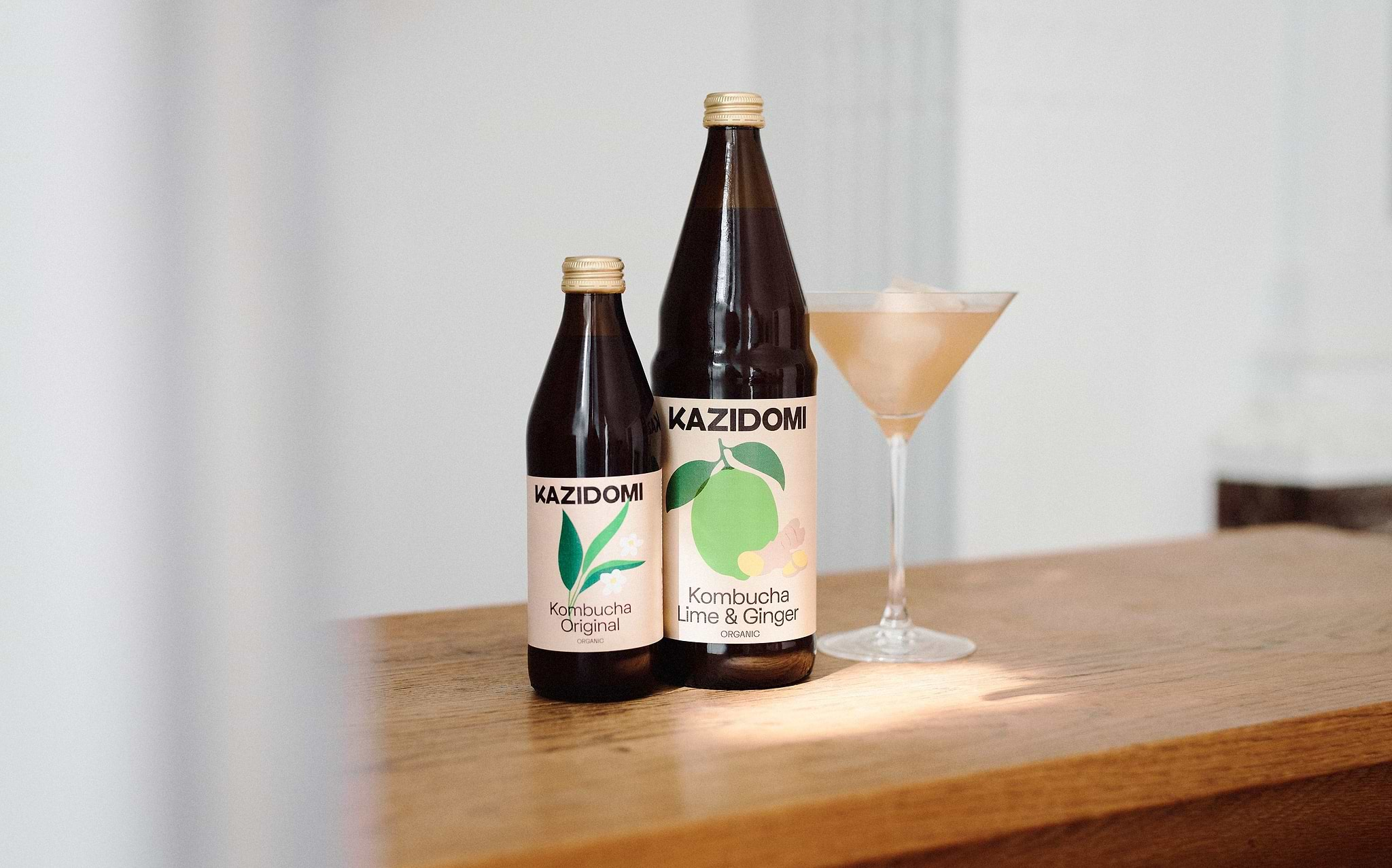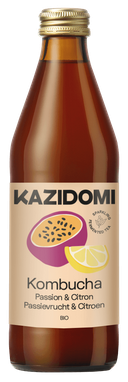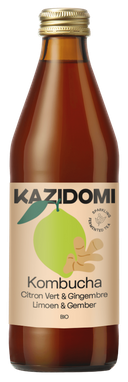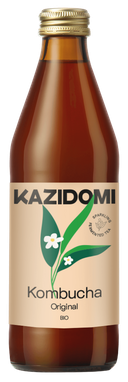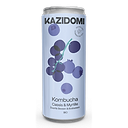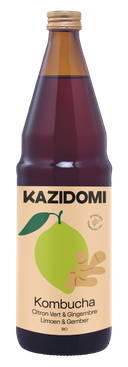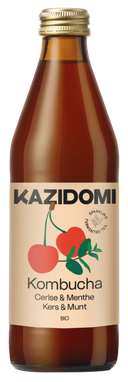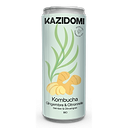Discover our range of organic kombuchas
Drinking kombucha is more than just quenching your thirst. This ancient fermented drink, born from the meeting of sweet tea and living microorganisms, is now seen as a full-fledged health food. You’ll find it in organic aisles next to kefirs, detox juices, and probiotic beverages. But what’s really behind this fizzy elixir?
A Fermentation Full of Benefits
Kombucha is made from sweetened tea and a SCOBY (Symbiotic Culture Of Bacteria and Yeast), a living culture of yeasts and bacteria. This natural fermentation process transforms sugar into organic acids, enzymes, active ferments, and probiotics beneficial for digestion.
This living drink, slightly tangy and naturally fizzy, also contains B vitamins, vitamin C, essential amino acids, and antioxidants. It's often compared to kefir or even non-alcoholic beer due to its refreshing texture and fermented flavors.
Why Add Kombucha to Your Diet?
Kombucha is considered a functional food with numerous benefits for gut health and the immune system. Thanks to its high content of natural ferments and live bacteria, it helps strengthen the microbiome, restore digestive balance, and relieve common issues like bloating, stomach discomfort, or slow digestion.
Some studies also suggest potential roles in disease prevention, including certain cancers and metabolic disorders, though more scientific research is needed. What’s certain is that many people report clearer skin, better energy, and an overall sense of well-being after incorporating kombucha into their routine.
When and How to Drink Kombucha?
Kombucha is best enjoyed cold as a refreshing drink, any time of the day. It can be consumed in the morning, on an empty stomach, or between meals. Many like to drink it as a healthier option in the afternoon or after exercise, instead of a soda or sugary drink.
It’s recommended to start with a small amount, such as half a glass, to let the body adjust to its probiotic effects. You can then increase to one glass per day, depending on your needs. Kombucha fits perfectly into a balanced diet, alongside yogurt, fermented foods, and mineral-rich juices.
A Natural Alternative to Industrial Drinks
Unlike sodas and sugary beverages, kombucha contains less sugar thanks to the fermentation process. Its all-natural composition — free from preservatives and additives — makes it an ideal choice for those looking to drink better without giving up on taste.
In terms of flavor, every brand develops its own combinations: ginger, hibiscus, lemon, peach, red berries… At Kazidomi, we’ve created five unique blends, ranging from fruity to floral and even spicy. Kombucha also makes a great base for non-alcoholic cocktails, ideal for fans of original fermented drinks.
Kombucha: A Partner for Active and Sporty Lifestyles
Rich in vitamins, essential nutrients, and mildly energizing, kombucha is also popular among athletes. It helps with rehydration, supports mineral absorption, and assists the body in post-workout recovery. When integrated into a healthy routine, it becomes a natural and effective recovery drink.
In Summary
An ancient drink brought back into the spotlight, kombucha has become a must-have for those seeking a natural, beneficial, and enjoyable drink. Fermented, low in sugar, and full of active cultures, this organic beverage ticks all the boxes: pleasure, effectiveness, and balance.
FAQ – All You Need to Know About Kombucha
1. Is kombucha really good for your health? Yes, kombucha is a naturally fermented drink that provides probiotics, vitamins, and antioxidants. It supports digestion, contributes to gut balance, and strengthens the immune system. When included in a healthy diet, it promotes overall well-being.
2. Does kombucha contain sugar? Sugar is necessary at the start to feed the fermentation, but most of it is consumed during the process. The final beverage contains only a small amount of residual sugar and is far less sweet than a typical soda.
3. What’s the difference between kombucha and kefir? Both are fermented drinks with benefits for the gut microbiome. However, kombucha is made from tea, while kefir is made from milk or water. Their bacterial and yeast profiles differ, as do their flavors.
4. Is kombucha a probiotic food? Yes, kombucha is naturally rich in probiotics. Thanks to its live cultures, it supports gut health, boosts immunity, and aids digestion.
5. Can you drink kombucha every day? Absolutely — kombucha can be consumed daily in moderation. One glass per day is enough to enjoy its benefits without disrupting your body's balance.
6. Is kombucha good for the skin? Yes, by supporting the body’s natural detox and gut balance, kombucha can improve skin health. Many people notice a clearer complexion after a few weeks of regular consumption.
7. Can you drink kombucha after a workout? Kombucha is an excellent recovery drink, rich in minerals and nutrients and slightly energizing. It helps rehydrate, supports electrolyte absorption, and is a great alternative to commercial sports drinks.
8. What are the ingredients in kombucha? The traditional recipe includes tea, sugar, water, and a SCOBY (a symbiotic culture of bacteria and yeast). Some producers add fruits or herbs for extra flavor.
9. Is kombucha good for bloating? Yes, kombucha contains lactic acid bacteria and live cultures that help relieve bloating, improve digestion, and prevent common digestive issues.
10. Can kombucha help prevent certain diseases? Some studies are exploring kombucha’s potential in preventing metabolic or inflammatory diseases, and even certain cancers. While promising, these benefits still require scientific validation. In the meantime, kombucha remains a healthy addition to your daily routine.

